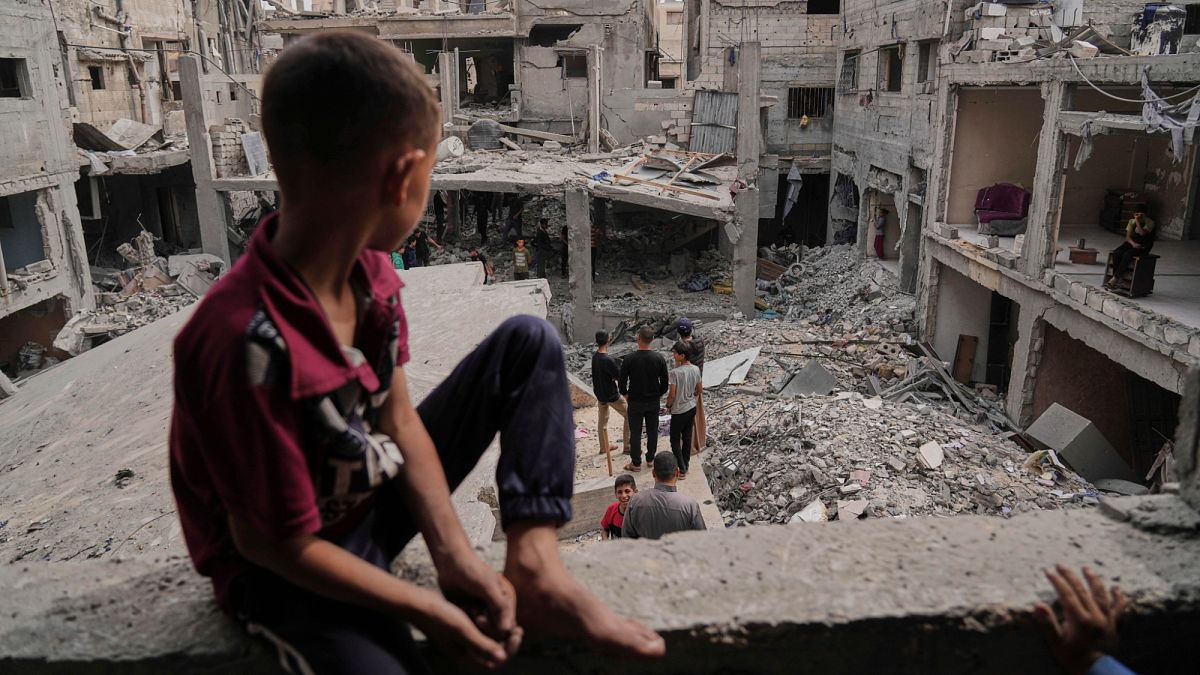

In a landscape marked by ongoing conflict and humanitarian challenges, the region of Gaza finds itself navigating difficult times. Recent developments highlight escalating tensions and a growing need for international dialogue and assistance.
The week began with heart-wrenching images of young residents in Gaza, such as a boy searching through the debris of a collapsed building after an Israeli strike. This poignant scene illuminates the human toll of the conflict and underscores the vulnerability of civilians caught in its path. In parallel, the humanitarian crisis deepens, with severe restrictions on essential food and medical aid delivery. This has led to widespread malnutrition among Gaza’s children, underscoring the urgency of addressing these basic needs despite ongoing hostilities.
Simultaneously, the international reaction continues to resonate following the circulation of videos showing Israeli hostages held by Hamas in Gaza. These recordings have been met with condemnation from global leaders, including UK Foreign Secretary David Lammy and French President Emmanuel Macron, both expressing strong disapproval of what they termed as acts of “abject cruelty.”
Meanwhile, tensions flared further following the visit of Israeli National Security Minister Itamar Ben-Gvir to the al-Aqsa mosque compound, a move seen as violating long-standing agreements regarding the site’s status. The visit has been met with significant backlash, not only from regional players but also from international voices calling for restraint and respect for historical accords.
In the midst of these provocations, reports from the ground in Gaza paint a grim picture. Israeli military actions have reportedly led to tragic fatalities at a food distribution site, further exacerbating the suffering of those struggling with food insecurity. This incident has sparked cries for humanitarian intervention and an urgent reassessment of military engagement policies.
As the conflict unfolds, the voices urging for peace and diplomatic resolution grow louder. An open letter signed by approximately 600 former Israeli security officials, including past Mossad and military heads, calls upon international leaders, particularly former U.S. President Donald Trump, to leverage their influence to bring an end to the hostilities. They argue that a peaceful resolution is critical not only for the sake of hostages held by Hamas but for the broader goal of long-term regional stability.
In parallel, the geopolitical picture is further complicated by developments outside Gaza. Ukraine has conducted strikes on Russian military assets in annexed Crimea, demonstrating the interconnectedness of global conflicts and the challenges of maintaining peace. Meanwhile, Russian airstrikes in Ukraine continue to incite further turmoil, with civilian areas being affected in rapid succession.
As we witness these unfolding events, it is evident that the Middle East and adjacent regions stand at a critical juncture. The actions taken by leaders and communities will shape the prospects for peace and healing. In these times of distress, the importance of calm, dialogue, and mediation is paramount, reminding us that amidst conflict, there still lies the hope and possibility of resolution through understanding and cooperation.
Source: {link}
